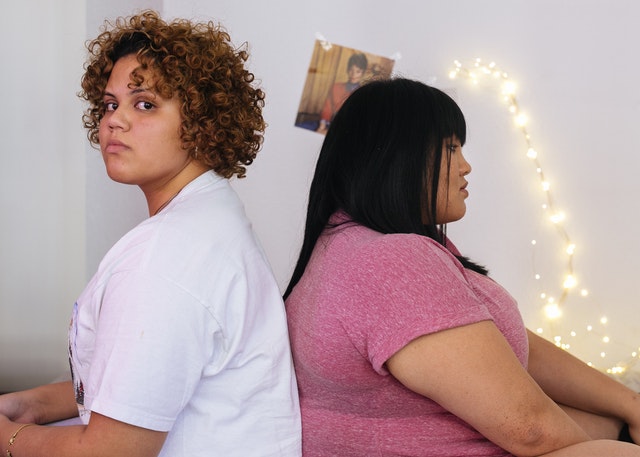
Body + Mind is reader-supported. We may earn an affiliate commission when you buy through some of the links on our site.
When it comes to toxic relationships, friendships aren’t usually the first thing on peoples’ minds. While romantic relationships and family ties hold lots of toxic potential, friendships aren’t always in the clear. In fact, friendships often have a lot of room for toxicity, and it can easily go unnoticed.
Everyone deserves healthy, fulfilling friendships in their lives. And finding them might involve reassessing some of the pals you’ve had around for a while and vetting new ones a bit more carefully. Toxicity can take many forms, and just like you don’t need to stand for toxicity in romantic relationships, you don’t have to take it in friendships, either.
Friendships are supposed to serve both of your lives and fulfill you. If you’re no longer sharing good times and having genuine fun together, it might be time to take a closer look at some of the signs you could be stuck in a toxic friendship.
Friendship is supposed to be a two-way street, and if you feel like you’re the only one giving, that’s a problem. If they’re constantly asking you for things, relying on you and taking your mental energy, all while never asking you about your life and feelings, it can cause fatigue and feelings of loneliness.
This also applies to friends who never reach out and expect you to do all the planning and legwork for them. Your friend should be excited to see you and motivated to make plans just like you are, and leaving all the support and planning to you is unfair. Everybody has tough times or busy patches where they’re less available to give, but if this is the permanent state of affairs, you might want to talk with your friend about the situation at hand.
Plenty of friendships are excessively close, and if that makes both of you happy, carry on! But even the tightest of healthy friendships have boundaries established. There’s a difference between being open, honest and close and having no boundaries.
If your friend routinely makes you uncomfortable or ignores you when you communicate your discomfort with a specific action, they are violating your boundaries. If you don’t mind your friend showing up at your place unannounced, then them doing that is no big deal. However, if you’ve asked them not to and they continue to do so, that’s not fair to you.
Contrary to popular belief — especially regarding female friendships — there is no need to be catty, jealous or competitive with your friends. There’s nothing wrong with a bit of healthy competition, but if you and your friend constantly feel the need to one-up each other or fall into the cycle of seeing one another’s success as your own failures, toxicity could be afoot. There is room for everyone to be successful and happy, and friends should celebrate each others’ victories, not secretly revel in their failures. If this sounds like your situation, you might have a bit of work to do.
One of the easiest ways to spot a bad friend is realizing they never come through for you. If your friend constantly counts on you, but you can never truly count on them, you might want to ask yourself what you even get out of your friendship.
Having a friend who fails to show up, forgets plans and generally doesn’t respect your time can be more work than reward.
People have their reasons for telling a little white lie here and there, and whether you’re okay with that is up to you, but constant and exaggerated dishonesty can be deceptive and unproductive to genuine connection. People can lie for sympathy, to get out of responsibilities or simply out of compulsion.
Or, perhaps you’re finding yourself a bit dishonest with your friend because you don’t feel comfortable sharing things with them. Regardless, if you’re uncomfortable with their dishonesty or their place in your life, you might not be in a friendship that’s serving you.
If you know your friend is toxic, but you’re stuck on what to do, it’s important to remember to put yourself first and prioritize your needs. Take things at your own pace. If lists tend to help, you can make a pros and cons list of whether you want to let your friend go or address your issues together.
Whether you talk with your friend or cut them out will depend on the situation at hand and your history with the friend in question. Only you can decide what’s best for you. The conversation or process will be hard, but you deserve to protect your mental health.
Toxic relationships are never fun, and although you might be in a tough position, you have the strength and skills to power on and make it through.
Your email address will only be used to send you our newsletter, and at any time you may unsubscribe. For more information, see our Privacy Policy.